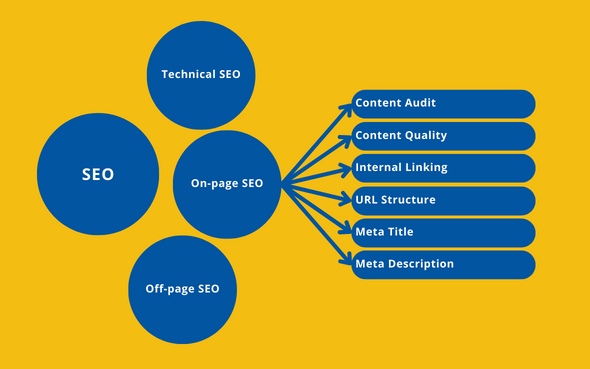What is Topical Authority?
The topical authority approach goes beyond traditional keyword optimization, diving deeper into the essence of content authority and relevance. But what exactly is topical authority, and why does it matter so much in today’s SEO practices? This comprehensive guide demystifies topical authority, exploring its significance, workings, and strategies to build it effectively. Tailored for anyone looking to enhance their website’s SEO performance, this post offers valuable insights into establishing your site as a leading authority in your niche, ultimately driving more traffic and engagement.

What is Topical Authority
Topical authority refers to a website’s recognition by search engines and users as a go-to source for information on a specific topic or niche. It’s about being perceived as an expert in a particular field, where your website consistently delivers in-depth, accurate, and valuable content on related subjects. Unlike traditional SEO, which often focuses on specific keywords, topical authority is about covering a topic comprehensively, offering a breadth and depth of information that resonates with the audience’s needs and queries.
Achieving topical authority means your website doesn’t just target isolated keywords. Instead, it develops an ecosystem of content that covers various aspects of a topic. This approach involves creating detailed, high-quality content that addresses different facets and questions related to the topic, providing the user with a rich, informative experience. When search engines recognize the depth and breadth of your content, they are more likely to rank your site higher for queries related to that topic, perceiving your site as a credible and authoritative source.
Why is Topical Authority Important for SEO?
Topical authority is vital for SEO because it aligns with how search engines aim to serve users: by providing the most relevant, authoritative, and comprehensive information. Search engines like Google use sophisticated algorithms to assess the quality and relevance of content. Websites with strong topical authority are often rewarded with higher search rankings, which leads to increased visibility.
Establishing topical authority enhances your website’s trustworthiness, not just in the eyes of search engines but also among users. It leads to higher engagement rates, lower bounce rates, and more returning visits, as users tend to trust and refer to sites that consistently provide valuable and in-depth content. Furthermore, websites with strong topical authority are more likely to earn quality backlinks from other reputable sources, boosting their SEO.
By focusing on topical authority, you align with the evolving nature of search algorithms that prioritize user intent and content quality over keyword density. This focus leads to more sustainable SEO success, as it builds a long-term, loyal audience base and fosters trust and credibility in your niche.
How Does Topical Authority Work?
Topical authority creates a comprehensive web of content covering a specific subject area, including various types of content such as articles, blog posts, guides, infographics, and videos, each addressing different aspects and questions related to the topic. The goal is to cover the topic so thoroughly that your website becomes the ultimate resource for that subject.
Search engines like Google use advanced algorithms to crawl and index web pages, determining their relevance and authority on a given topic. When your site consistently publishes high-quality, relevant content on a topic, search engines start to recognize it as an authoritative source. This recognition is further bolstered when other reputable sites link to your content, signaling its value and credibility.
The more comprehensive and interconnected your content is, the better your chances of being recognized as a topical authority. It only happens after some time; it requires a strategic approach to content creation and curation, focusing on depth, quality, and user engagement. As you build this content network, your site’s authority on the topic strengthens, leading to higher search rankings and increased visibility.
How to Build Topical Authority?
Building topical authority involves a strategic and consistent approach to content creation. Start by identifying your niche or the specific topic for which you want to be known. Conduct thorough research to understand various subtopics, questions, and issues related to your main topic. This understanding forms the foundation of your content strategy.
- Create a content plan that covers these subtopics in depth. Each piece of content should be well-researched, informative, and engaging, offering real value to your audience. It’s not just about quantity; the quality of your content is paramount. Your content should answer questions, solve problems, and provide insights not readily available elsewhere.
- Incorporate different content formats, such as blog posts, long-form articles, videos, podcasts, and infographics, to cater to diverse user preferences. Interlink your content to create a cohesive and interconnected web of information. This not only enhances user experience but also helps search engines understand the relationship between different pieces of content.
- Engage with your audience through comments, social media, and forums to understand their needs and feedback. This engagement can guide your future content and help build a community around your brand. Lastly, promote your content through various channels, including social media, email newsletters, and collaborations with influencers in your niche.
Building topical authority is a long-term commitment, but the payoff is substantial. It positions your website as a credible, go-to resource in your field, leading to sustained SEO success, increased traffic, and higher engagement.


